'Money from heaven': Art Center, YMCA, others get record $45 million in endowments from couple's estate
Eight leading Des Moines nonprofits will receive $45 million in endowments from the estate of a pair of longtime Des Moines philanthropists.
It's the largest gift ever to the Community Foundation of Greater Des Moines, which will manage the endowments.
In turn, many of the recipients told the Des Moines Register it is the single largest gift in their history.
The endowments from Harriet and J. Locke Macomber will benefit the BWA Foundation, the Des Moines Art Center, the Des Moines Symphony, Drake University Law School, Orchard Place, United Way of Central Iowa, St. Paul's Episcopal Cathedral and the YMCA of Greater Des Moines.
Each group's endowment ensures it will receive funding annually in perpetuity. The Community Foundation declined to specify the individual amounts of the endowments.
"It's really moving. And these two people, they were just as personable as could be. Just regular folks," said Anne Starr, CEO of Orchard Place, which provides children's mental health services. "And wow, what they were able to do. It's pretty amazing."
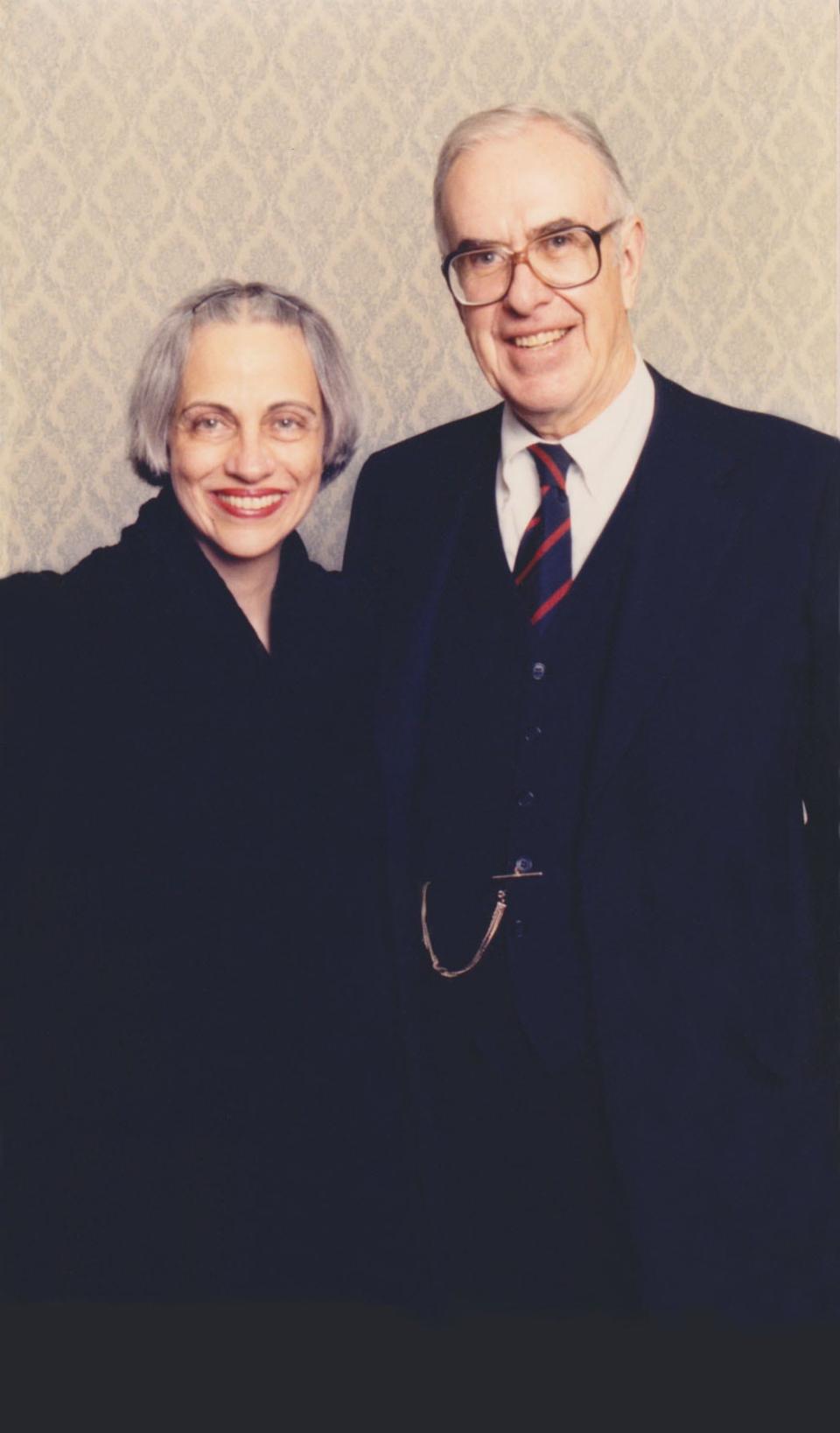
Who were Harriet and Locke Macomber?
Locke Macomber, who served on many of the boards of directors of the benefiting organizations, died in 1998. Harriet Starzinger Macomber, also a longtime board member and community volunteer, died in 2020.
Both natives of Des Moines, they came from distinguished Iowa families. Locke Macomber's grandfather and uncle, both named John MacVicar, had been mayors of Des Moines, and Interstate 235 initially was named the MacVicar Freeway in their honor.
Harriet Macomber's grandfather, Hiram Evans, was a judge and prosecutor in Wayne County, served in Congress and the Iowa House and was a member of the state Board of Regents. Her grandmother, Harriet Belvel Evans, a pioneer suffragist, also was a lawyer.
Harriet and Locke Macomber were married in 1954. Their first of many travels together was their honeymoon in Europe, where they arrived by steamship, said Will Hoekman, who worked for Locke Macomber and, along with this wife, Dixie, became close friends of the couple.
The Macombers were immersed in Des Moines' art, music and theater community, and loved to see shows and visit museums in New York and London. Harriet Macomber would request scripts before seeing theatrical productions so she could study the storylines and characters. She also sent a personal note, often with a critique she wasn't afraid to share, to Des Moines Symphony Maestro Joseph Giunta after every show.
She was "especially devoted to the Des Moines Art Center and had a deep appreciation of its collection," her obituary said. She served as a docent, membership chair and a trustee, a position that both her father and husband had previously held.
More: Anniversary gift: Des Moines Art Center gets $5 million as it prepares to mark 75th year
Locke Macomber was an avid golfer and served in the Navy during World War II, participating in the invasion of Okinawa.
He was chair of the board and president of Valley National Bank and oversaw the historic restoration of the art deco-style Iowa-Des Moines National Bank building at 520 Walnut St. to serve as Valley's downtown Des Moines offices. U.S. Bank eventually absorbed a banking group that included Valley and now occupies the building.
Macomber was general chair of the 1975 United Way campaign, board president of the Des Moines Symphony and Orchard Place, and a life trustee of Drake University and the Des Moines Art Center, his obituary says.
"They had no children. And I think the charities became their family," said Hoekman. "Locke was very much involved in the community, and Harriet as well."
He described them as "quite frugal" and "astute investors," subscribing to the Wall Street Journal and reading daily stock reports. With a finance degree from Wellesley College, Harriet Macomber managed her investments after her husband's death.
Before her death, she worked with the Community Foundation of Greater Des Moines to oversee distribution and management of the funds, said President Kristi Knous. The foundation is tasked with ensuring the gift "is being used in the manner she dreamt and intended," she said.
Knous announced the $45 million endowment at the foundation's annual lunch Monday. But she's been working with the nonprofit organizations for quite a while to determine how the funds will be spent. Many of the groups' directors called the donation a "career highlight," she said.
"As a leader of a nonprofit organization, you do dream big dreams," Knous said. "But when do you actually have the opportunity to make them come to life, with what I'm going to call money from heaven?"
To them, "it means sustainability, it means the ability to carry out something that truly has been a dream," she said.
Here's what the organizations do, and their plans for the funds.
BWA Foundation
Founded in 1889, the BWA Foundation long provided housing and meals to women who came to Des Moines from rural communities to work. It sold its last residence in 1980, using the proceeds to create an endowment that Harriet Macomber managed until the Community Foundation of Greater Des Moines took over that task, said BWA board president Katie Gillette.
Macomber served on the group's board of directors for 50 years.
Each year, BWA Foundation donates to organizations that support women and children in Polk County, such as Orchard Place, Dorothy’s House for survivors of human trafficking, Des Moines Public Schools, the Des Moines Public Library and Faith & Grace Garden, a food pantry garden at St. Timothy's Episcopal Church in West Des Moines.
The Macombers' gift will create the Macomber Giving Fund, which will double BWA's impact, Gillette said.
"We're so proud that Harriet believes in us and that she believes in the mission of this foundation, which has been very quiet and has been plugging along all these years — that she essentially wanted to double us," she said.
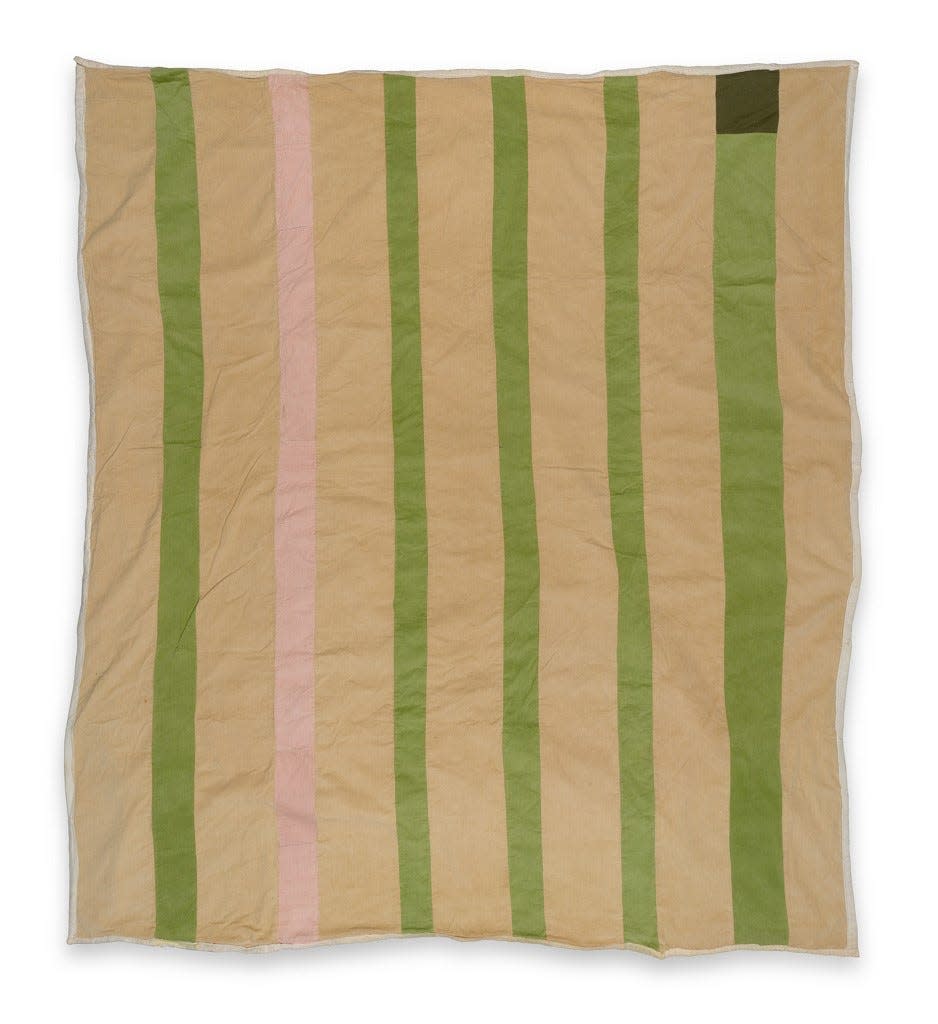
Des Moines Art Center
The Macombers' ties to the Des Moines Art Center date from the opening of its original wing in 1948, when Harriet Macomber's father was a board member. The new gift adds to an endowment the couple already created for the museum.
Tiffany Nagel Spinner, director of development, said the art center will use the funds to add to its permanent collection and help pay for its three temporary exhibits each year.
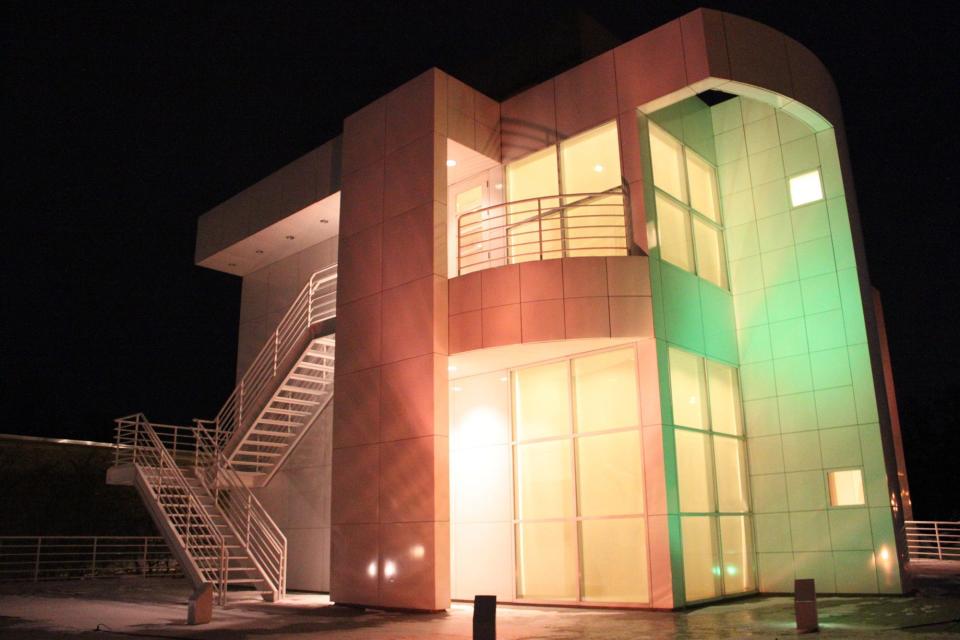
More: The Des Moines Art Center's cafe returns to business with quiches and seared salmon
"This really allows us to have access to money that allows us to purchase significant works by seminal artists and help us remain relevant," Nagel Spinner said.
The Art Center already has purchased three works using the funds, including a lithograph by American sculptor Ruth Asawa, a print by American painter Alice Neel and a quilt made by the women of the hamlet of Gee's Bend, Alabama, whose work is recognized as a singular example of African American artistic expression.
The Macombers' legacy "will be continued to be felt by future generations. To me that is what is most meaningful — their foresight," Nagel Spinner said. "She was such a keen investor and so quietly philanthropic in this community."
Previously: Anniversary gift: Des Moines Art Center gets $5 million as it prepares to mark 75th year
Des Moines Symphony
With the Macombers' gift, the Des Moines Symphony will host an annual Harriet S. and J. Locke Macomber Concert. The first will be held Sept. 24 and 25, featuring classical guitarist Sharon Isbin.
"It's going to be a concert that will allow us to do one big thing," said Andrea Solomon, director of development. "It could be that we play what our conductor Joe refers to as a once-in-a-lifetime piece," whether it's commissioning a high-profile artist, debuting a new composition or hosting a large chorus or orchestra — "something that would be expensive to put on," she said.
Locke Macomber served on the symphony's board starting in the 1950s, first as treasurer and later as president. He remained a member until 1986.
Harriet Macomber was a season subscriber, who had a close relationship with Giunta.
"She was an-ever present person with the symphony up until her death, really," Solomon said.
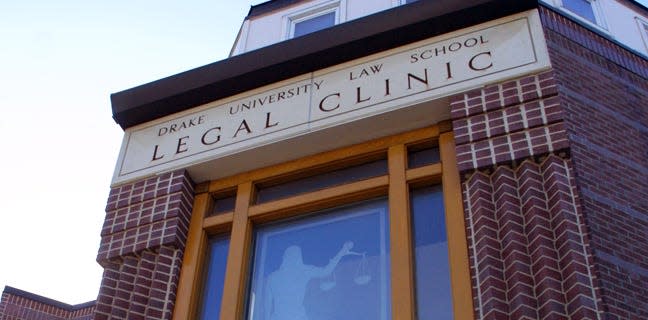
Drake University Law School
Drake's Law School, of which Locke Macomber was an alum, will use its endowment to fund the Entrepreneurial/Transactional Clinic, which provides legal services for startup businesses and nonprofits in low-income neighborhoods.
The grant funding the school used to launch the clinic in 2014 was quickly running out, and it was in danger of closing, said the school's dean, Jerry Anderson. Now it can operate in perpetuity, he said.
"I guess the bottom line is this gift is a win-win in the sense that it is really good experience for law students in terms of their legal education, because you can't get better training than actually representing real people in real places, and at the same time it helps the community in providing free legal advice to people who really need it," Anderson said.
More: Drake Law School, Iowa State Public Defender announce new wrongful convictions clinic
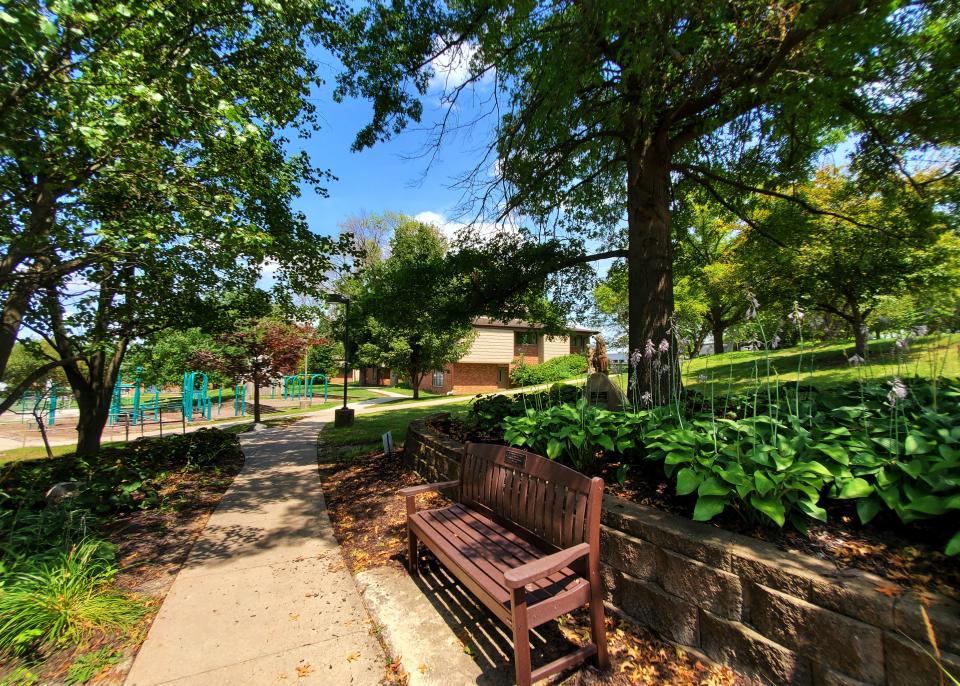
Orchard Place
A provider of inpatient and outpatient youth mental health services, Orchard Place intends to use its endowment to expand its services, Starr, the CEO, said.
It had been considering an expansion before the arrival of COVID-19 in Iowa. The pandemic's effect on youth mental health solidified that need, with record referrals for children and adolescents to Orchard Place, she said.
But expansions can be especially hard without securing annual funding, she said.
"Now it's clear that's the direction that we want to go in," Starr said. "And being able to use this funding to help with that, to provide that additional boost when you’re getting started with a new location, a new staff, perhaps a new delivery method that we haven't tried before, that's huge to have that kind of stability — to know that it gives us that security to be able to move forward and we don’t have to worry about destabilizing something else."
The group's board of directors, on which Locke Macomber served, will work to determine exactly what that expansion will look like, based on the organization's highest needs. One consideration is expanding rural mental health services through telehealth or another means.
Macomber was instrumental in a previous expansion when, as board president in 1979, he oversaw the purchase of what is now a 10-acre campus for Orchard Place at 925 S.W. Porter Ave.

United Way of Central Iowa
The Macombers' endowment will support a variety of early childhood programs that the United Way of Central Iowa provides for "the most vulnerable children and their families," said Melanie Campbell, chief donor engagement officer.
They include the Vision to Learn mobile eye exam clinic, which provides two pairs of free glasses to children, and the Smile Squad mobile dentistry clinic, which administers exams and services such as fluoride treatment and fillings. The United Way services also include a pre-kindergarten-through-fifth grade volunteer reading program and career pathway services for youth in middle and high school.
Locke Macomber was the annual campaign chair in 1975, and his wife continued to support the United Way after his death, Campbell said. She was an active member of the Tocqueville Society, an organization for United Way donors who commit $10,000 or more per year.
"To think about the impact this is going to make, because this gift goes on in perpetuity, is really significant," Campbell said. "Especially as we come out of such uncertain times with the pandemic, and everything that is happening with the economy, having gifts like this really helps us with our mission."
More: United Way's literacy program is a big success this year
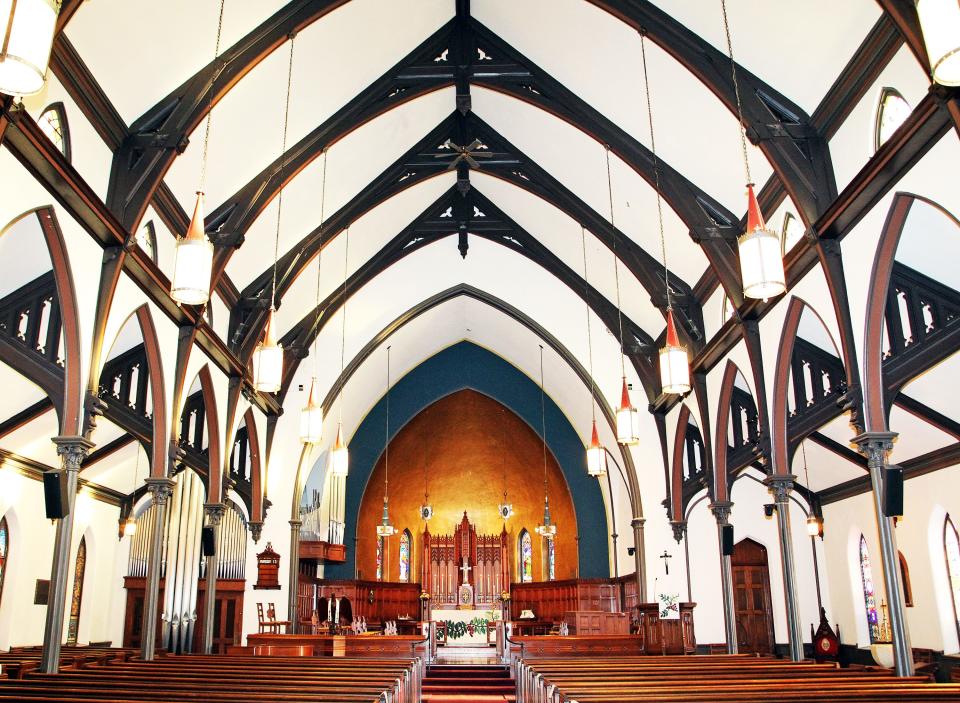
St. Paul's Episcopal Cathedral
A longtime member of St. Paul's Episcopal Cathedral, where her husband's mother, Marjorie Macomber, also had been a member, Harriet Macomber directed that the church spend its endowment on social outreach. Past programs have included donating to The Connection Cafe, a group of downtown churches that serve lunch Monday through Friday to people in need, and starting a summer music camp, said Rick Stearns, church treasurer.
More: Meet the man who plays the church bells that ring through downtown Des Moines
He estimates the church at 815 High St. will receive at least $40,000 a year.
"We want to be active in the downtown community, and it's money we don't have to take out of our operating fund," he said. "So it really does a lot of good."

YMCA of Greater Des Moines
The YMCA of Greater Des Moines will fund its Y Achievers program, which helps seventh- through 12th-grade students plan for post-graduation education or a career. The low-income students often are the first in their families to attend college, said Vicky Foresman, vice president of mission advancement.
More: Downtown YMCA back on the market; developer says he's still pursuing affordable housing project
Locke Macomber first got involved with the YMCA as a boy when he attended its camp in Boone. He served on the board in the mid-1950s and again in the mid-1970s.
After his death, his wife remained engaged with the YMCA, always calling to ask after the children, Foresman said.
"Their passion was truly in helping kids and youth development," she said.
Kim Norvell covers growth and development for the Register. Reach her at knorvell@dmreg.com or 515-284-8259. Follow her on Twitter @KimNorvellDMR.
This article originally appeared on Des Moines Register: $45 million endowment from couple's estate funds Des Moines nonprofits

